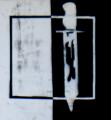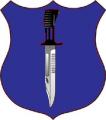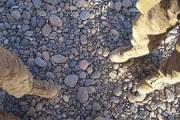Everything - different patrols would have specific tasks, but daily patrols would help keep a an eye on things and, better, dominate the ground. No patrolling, and you'll find things like IEDs start popping up closer and closer to your home.
As well, the US reference you found is, in my opinion, incorrect and outdated - overt presence patrols were always conducted in areas where contact with the enemy could take place. This is why we treated every patrol as an advance to contact.
I don't know what your "been there, done that" constitutes, but your appeals to authority never seem to reflect how things work on the ground. You'd be surprised - pattern of life takes a little while to get used to, but after a month or so soldiers, especially ones with multiple tours, usually figure out what constitutes a combat indicator. The fact that most patrols are conducted with the ANSF only makes this easier - when the ANA start getting antsy, it's usually game on.








 ) and too many overt patrols accomplish little or nothing.
) and too many overt patrols accomplish little or nothing.









Bookmarks